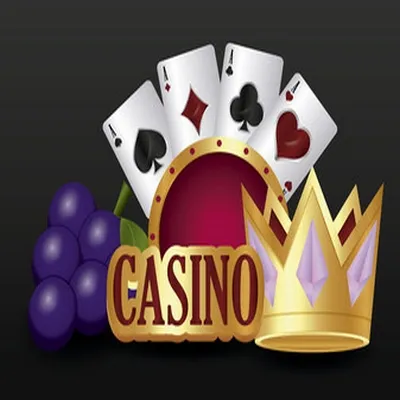i9 pizzaria
$354
i9 pizzariaOne final tip is to join a lottery pool. Some players choose to join a lottery pool or club, where they pool their money to buy tickets and share the winnings. While this increases your chances of winning, it is important to make sure there are clear agreements about how the prize will be shared.
These strategies and tips will not only help you minimize your risk but also increase your chances of winning in betting. Always remember, betting is a long-term game, and success comes from patience, analysis and smart decision making.
Product description

i9 pizzariaOne of the exciting aspects of playing baccarat is the side bet options. Many casinos offer side bets, such as betting on a “Tie” or betting on specific outcomes such as “Player Pair” and “Banker Pair.” While these bets have higher payouts, they also have lower probabilities. Choosing side bets should be done with caution, and only when you feel you have mastered the basic strategy.
Bookmaker Odds are the odds that bookmakers offer for each sports match, showing their assessment of each team's ability to win. These odds can change continuously throughout the match, based on events that occur during the match such as cards, goals, or other factors. Players can participate in these bets to increase their chances of winning.

Gambling, or betting, is an activity that humans have been involved in for thousands of years. From simple games to grand casinos and modern online sports betting, this industry has gone through a long journey of development. The following article will review important milestones in the history of the betting industry. Betting is not a new concept, but has existed since ancient civilizations. Archaeological evidence shows that, as early as the Babylonian and Egyptian periods, people participated in games of chance, often in forms of betting involving cards or dice games. Betting in Greece and Rome: Ancient Greek and Roman civilizations organized horse races and sports competitions, where people could bet on the outcome of events. Chariot races in Rome and arena sports were among the earliest forms of betting known to mankind. These games were not only part of the entertainment culture but were also associated with religious beliefs and rituals. Dice and card games were also used as a form of betting from this period, although there was no formal system or rules. Cards in particular appeared in China around the 9th century and gradually spread to other regions such as India and Europe. Betting flourished in Europe in the 17th and 18th centuries, when casino games began to become more popular. The first casino opened in Venice, Italy in 1638. This was the first place with formal betting organization and procedures. The first casinos mainly served the nobility and the wealthy, and were only open on special occasions such as festivals. The first casino in Venice (1638): The first casino opened in Venice, Italy in 1638. This was the first place with formal betting organization and procedures. The first casinos catered mainly to the nobility and the wealthy, and were only open on special occasions such as festivals. Horse racing betting: Horse racing was one of the first popular forms of sports betting and began to become part of the betting culture in Europe in the 18th century. The first horse races were held in England, where a strong horse racing industry developed, with famous races such as The Derby. Gambling and sports competitions: In the 19th century, gambling games at casinos and sports competitions such as football and horse racing began to become popular events that people bet on. In the 20th century, the betting industry continued to thrive, especially after countries began to legalize and regulate the industry. The city of Las Vegas in the United States emerged as the "gambling capital" of the world in the 1930s when Nevada legalized casino games. Las Vegas casinos have become an icon of the gambling industry, attracting tourists and gamblers from all over the world. Famous venues such as the Bellagio, Caesars Palace and The Venetian have become symbols of luxury and the gambler's lifestyle. Sports betting officially flourished in the 1940s and 1950s, especially in Las Vegas casinos. Sports such as football, basketball, and horse racing began to attract the attention of bettors. By the late 20th century, sports betting had gone beyond entertainment and had become a professional industry with major organizations and tournaments, such as the Super Bowl (USA) and the Premier League (UK).
Online casinos and international bookmakers have expanded their services to Southeast Asian countries, giving players more choices.










